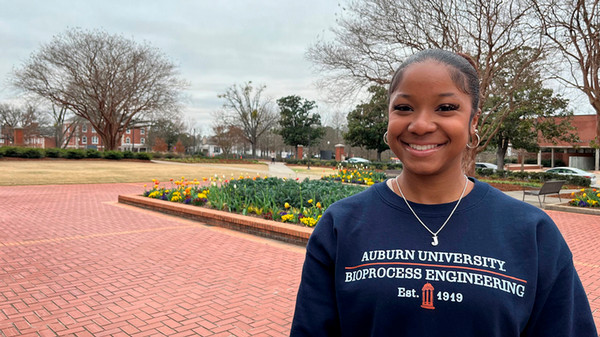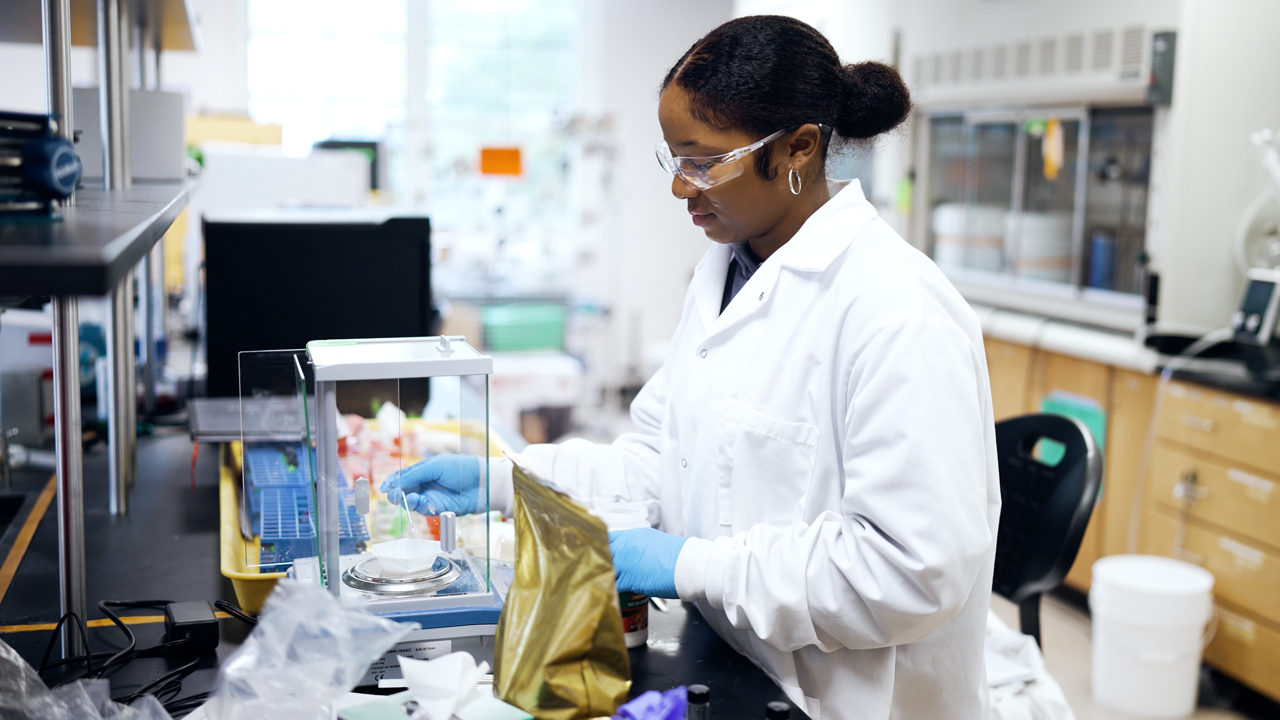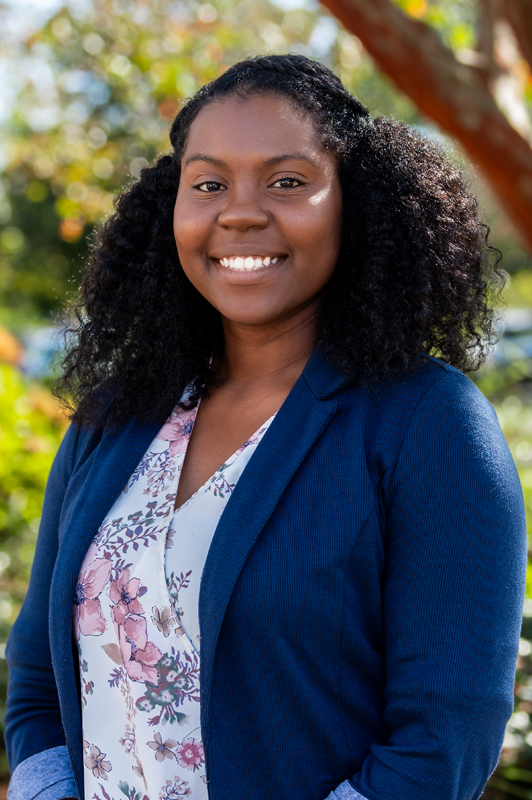Senior in bioprocess engineering is college's only Matthews Scholar Program fellow for 2023-24
Published: Mar 4, 2024 10:00 AM
By Joe McAdory
Ever thought about using biopolymers to treat hypo and hyperpigmentation? Jada Neal has — and she’s doing it.
The senior in bioprocess engineering, one of 20 Auburn Engineering Undergraduate Research Fellows for 2023-24, has a passion for applying lessons learned in Symone Alexander’s laboratory and turning them into potential skin care solutions.
It’s no wonder she was chosen among the university’s 13 inaugural Matthews Scholars Program fellows and the only fellow representing Auburn Engineering.
The Matthews Scholar Program is a collaboration between the Honors College, the Office of Inclusion and Diversity and the Office of Undergraduate Research. This program is named in honor of the legacy of Dr. Josetta Brittain Matthews, Auburn’s first African American graduate by earning a master’s degree in education in 1966 and the first African American faculty member in 1972.

“It's an honor to have this privilege because not only do they fund my project, allowing me to obtain necessities to complete my research, but this program also offers the opportunity to attend science conferences on local and national levels,” Neal said. “I am blessed to have already attended two conferences where I had the chance to present my skin care research twice. This program also affords professional development opportunities, as well as academic and career exposure. You can learn more about the industry, graduate school programs, and network with companies you may not see at your school. To sum, it opens doors.”
Neal said the fellowship played a role in helping her land an internship this summer at Unilever, maker of Dove skin care products, in Trumbull, Connecticut, where she’ll be working within the company's research and development department.
Neal — one of two Auburn chemical engineering students to spend eight weeks studying cutting-edge collaborative bioprocess research at Hannover (Germany) Medical School as part of the National Science Foundation-funded International Research Experiences for Students Track I project — will also have the opportunity this fall to attend the National Organization for the Professional Advancement of Black Chemists and Chemical Engineers at its annual conference in Orlando, Florida.
“Jada has worked in my group for more than a year now, and it has been amazing to watch her growth and independence in an academic research setting,” said Alexander, an assistant professor in the Department of Chemical Engineering. “Jada’s interest in the cosmetics industry has sparked a new research area in my group, and I am excited to witness the impact she will make on the skin care industry in the future.”
Growing up in rural Verbena, Alabama, Neal was determined to one day be a scientist, particularly in chemical engineering.
“Then I attended two engineering summer camps here at Auburn University and I was given the chance to explore each discipline,” she said.
Moving on to Auburn Engineering as a freshman, she chose chemical engineering, later biosystem engineering’s bioprocess option — and then she chose research... undergraduate research.
“I became interested in research as an undergraduate to begin exploring skin care solutions and my interest in attending graduate school to obtain a Ph.D. in a science background,” she said. “It is beneficial to have undergraduate research experience when you're looking for employment or if you want to go to graduate school. Being in a lab and having some experience with a professor who can guide you along the way has been a staple in my career seeking.”
Neal plans to take her skin care solutions research, “Dietary Fiber Inspired Cosmetic Gels for Hypo and Hyperpigmentation” to the annual Auburn Research Symposium, open to undergraduate, graduate and post-doctoral students, March 26 in the Melton Student Center.
“This event gives students a platform to showcase their amazing research projects, touching a vast number of topics, and it is another chance to network, receive constructive feedback and overall be inspired,” Neal said.
How has Auburn Engineering played a role in Neal’s success? Unmatched support, she said.
“It started with recruiting when I was in high school (Chilton County), and since my enrollment here as a freshman, the resources that Auburn University provides have been endless,” she said. “Another big factor in my success was being able to meet and connect with people who want to help me succeed. People at Auburn are eager to help one another, not only with academics, but in all of aspects in life.”
Media Contact: , jem0040@auburn.edu, 334.844.3447
Jada Neal is among the university's 13 inaugural Matthews Scholars Program fellows, and the only fellow representing Auburn Engineering.


